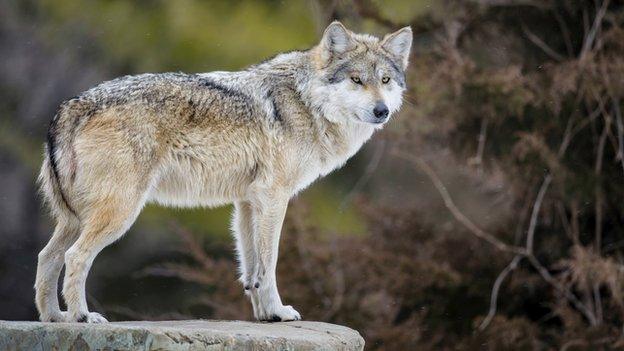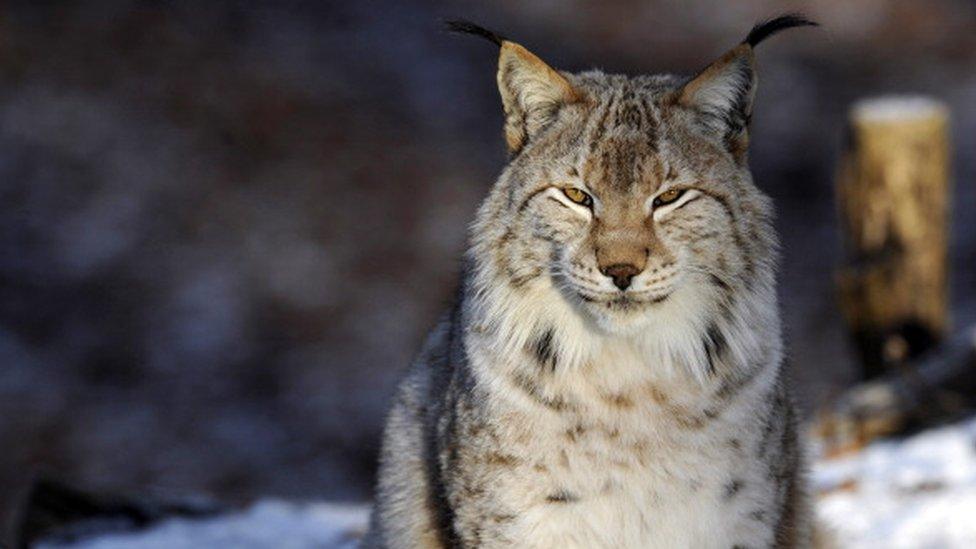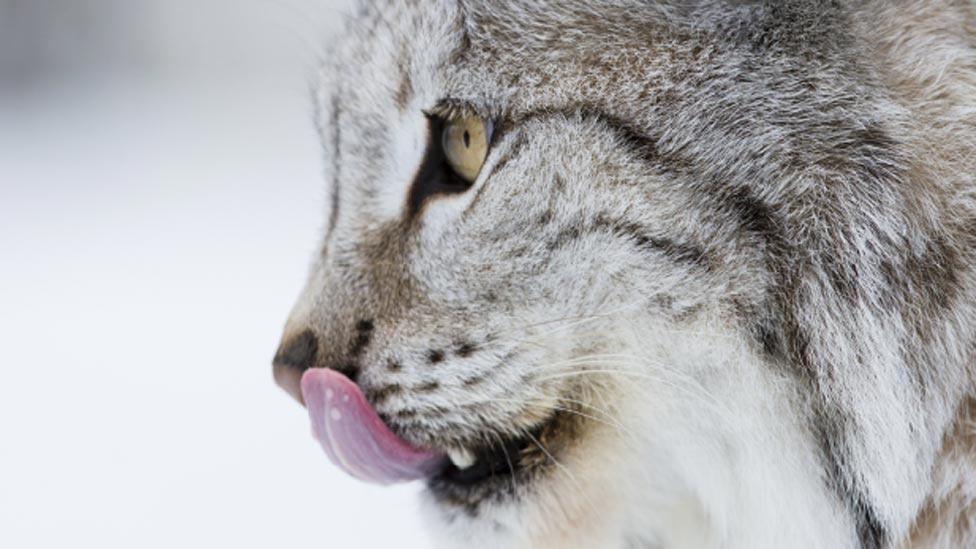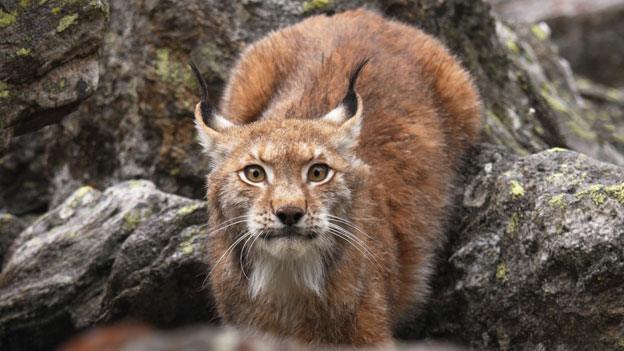Call for lynx and wolf reintroduction
- Published
Lynx are thought to have become extinct in the UK in the medieval period
Lynx, wild boar and, eventually, wolves, could all be reintroduced to Scotland under plans set out by a new campaign group.
Rewilding Britain, external has been established with the goal of restoring several key species which were hunted to extinction.
Its supporters argue other European countries are home to large predators.
They believe there is no reason why Scotland, and some other parts of Britain, should be any different.
The group's proposals have already drawn criticism from farmers' leaders.
And the Scottish government says there are no plans to reintroduce large predators such as lynx or wolves.
'Keystone species'
Rewildling Britain says its plans would allow "native forests to regenerate, while giving the seas a chance to recover from industrial fishing".
But it is the group's goal of reintroducing species including the lynx, and ultimately the wolf, which will attract most scrutiny.
Spokeswoman Susan Wright told BBC Scotland: "A lot of our important animals were hunted to extinction, species like the wolf, the wild boar, the lynx.
"These are important keystone species which actually drive ecological processes and we should be looking a lot more seriously at bringing these animals back."
NFU Scotland has called on politicians and Scottish Natural Heritage to "show stronger leadership" on the issue of rewilding.
Vice President Andrew McCornick said: "Our countryside provides food, forestry, tourism, renewables, field sports and environmental goods.
"Recent history has taught us any species introduction, whether legal or illegal, can have an impact on the many benefits that the Scottish countryside currently delivers."
Opponents of rewilding cite the return of beavers and sea eagles to Scotland as examples of how reintroductions can cause problems for farmers and crofters.
Landowners on Tayside say dams built by beavers have increased erosion and the risk of flooding in neighbouring fields.

The Scottish government says it has no plans to reintroduce large predators such as wolves or lynx
The animals' supporters argue they improve biodiversity by creating valuable habitats for a range of other species.
The beavers found in the Tay catchment were not part of an official reintroduction project.
A second Scottish population, at Knapdale in Argyll, was reintroduced as part of a detailed scientific study.
Scottish government ministers are currently considering whether the beavers should remain, now that the research work is complete.
Meanwhile, on Scotland's west coast crofters and sheep farmers have complained that sea eagles, also known as white tailed eagles, kill their lambs.
The extent of the predation is disputed by scientists and the birds have proved to be a popular tourist attraction, providing an economic boost for the Isle of Mull.
Prof Des Thompson is Principal Advisor on Biodiversity at Scottish Natural Heritage.
He believes a wide range of rewilding projects in Scotland have already proved successful.
'Proper conversation'
"There's been a huge effort and week on week, month on month, we're learning from these experiences", said Prof Thompson.
"It all depends on what you want to do with the landscape and the challenge is having a proper conversation with everyone who has a stake in the countryside."
Previous proposals to introduce wolves and bears on the Alladale Estate in Sutherland were criticised by walkers, concerned about plans to use fences to prevent the animals escaping from an area covering at least 50,000 acres.
But several of Rewilding Britain's goals have been welcomed by Ramblers Scotland.
Helen Todd, the organisation's campaigns and policy manager, said: "We are supportive of its overall vision, especially the intention to allow native forests to grow once more on the hills.
"Scotland is known for its wide open spaces, moorlands and mountains but many of our uplands lack the rich biodiversity we should expect to see while out walking."
A Scottish government spokeswoman said: "We intend to consider the issues carefully before coming to a decision on the possible reintroduction of the beaver.
"However there are no plans to reintroduce other species, especially top predators such as lynx or wolves."
- Published27 April 2015

- Published6 May 2015

- Published9 March 2015
